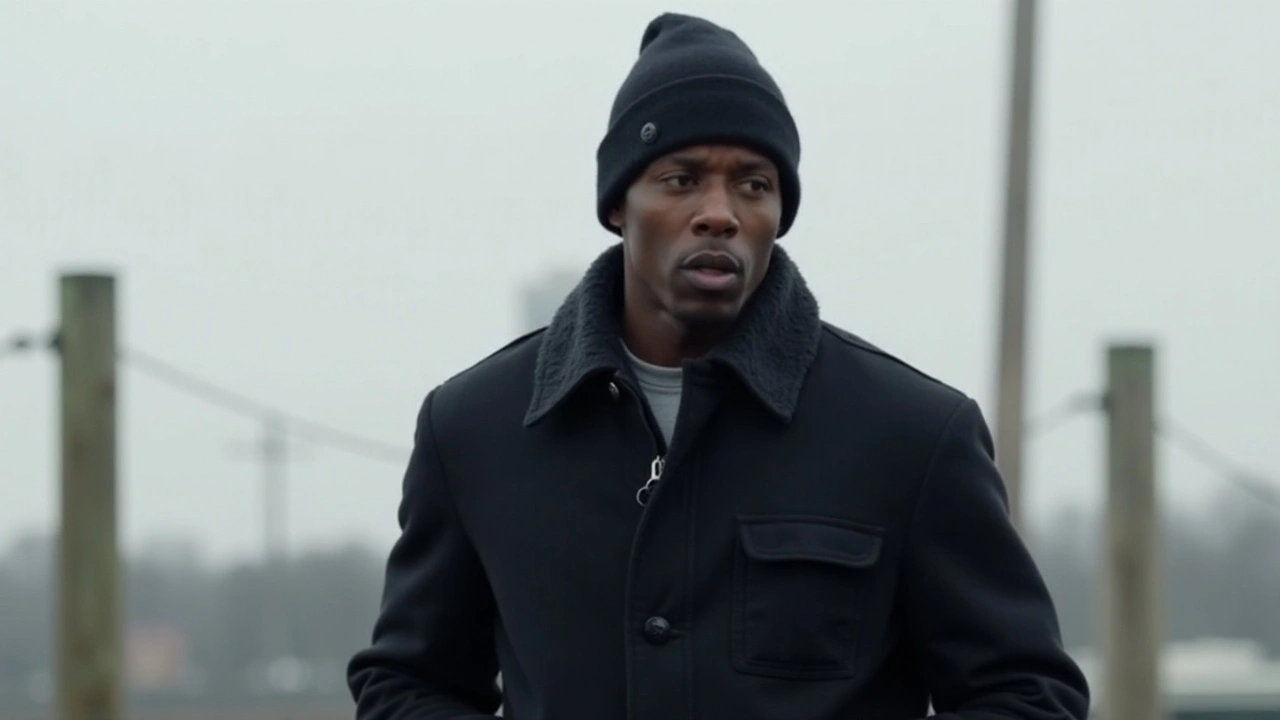An Inside Look at Tyrese Gibson and Ray Liotta’s Last Film Together
Hollywood is no stranger to tackling bold subjects, but Tyrese Gibson's new film '1992' ventures into profoundly sensitive and memorable territory. This gripping movie dives into the heart of the 1992 Los Angeles riots, sparked by the controversial verdict in the Rodney King trial. With Ray Liotta delivering a notable performance in his final role, the movie is set to leave a lasting impact on audiences.
The narrative unfolds with Tyrese Gibson portraying Mercer, a conscientious shopkeeper trying to shield his son from the mounting chaos. Meanwhile, Ray Liotta and Scott Eastwood capture the tense dynamic of another father-son duo, fervently plotting a heist to snatch valuable platinum from Mercer's store. The plot intricately weaves personal stories into the larger tapestry of the city's upheaval.
Revisiting Personal Memories
For Gibson, the film holds a deeply personal resonance. Raised in South Los Angeles, he vividly recalls the unrest that engulfed his community following the acquittal of the officers involved in the brutal beating of Rodney King. These memories gave his portrayal undeniable authenticity, but they also made the filming process emotionally taxing. He confesses that re-enacting such a turbulent chapter of history elicited a palpable discomfort, a sentiment echoed in the film's raw and unfiltered scenes.
The complexity of the narrative initially posed challenges in finding a willing distributor. Due to its intense focus on real-life events and police brutality, many studios were hesitant to back the film. However, Lionsgate eventually took on the project, allowing Gibson and his team to deliver a genuine and uncompromised portrayal of the historical events.
Ray Liotta: A Legacy Cemented in '1992'
Ray Liotta’s performance adds an irreplaceable layer of gravitas to '1992.' Known for his intense and immersive method acting, Liotta brought an atmosphere of sincerity and dedication to the set. Gibson speaks highly of Liotta, noting his professional rigor and the deep personal impact he had during the filming. Completing his scenes before his passing in 2022, Liotta left an indelible mark on '1992,' adding depth and nuance to the father-son heist storyline.
Liotta’s death, occurring while working on another project in the Dominican Republic, intensified the weight of this film in hindsight. The industry and fans mourned the loss of a versatile actor, but '1992' stands as a testament to his unfaltering commitment and talent. It’s a poignant reminder of Liotta's legacy and the emotional layers he brought to his characters.
Addressing Uncomfortable Truths
One of the core themes of '1992' is the stark exposure of racial tensions and police brutality. Gibson underscores the necessity of confronting these uncomfortable truths through art. His portrayal, enriched by his personal history and first-hand experiences, aims to shed light on a period that shaped modern discussions on race and justice in America.
Coinciding with the film’s release, Gibson unveiled his new double album, 'Beautiful Pain.' The album, characterized by its reflective and emotive tracks, echoes the themes explored in '1992.' Together, the film and album serve as powerful commentaries on the enduring struggles against systemic racism and the personal toll it exacts on individuals and communities.
The Impact of '1992'
Films like '1992' are a vivid reminder of cinema’s potential to challenge, inform, and evoke deep reflection. As audiences engage with Mercer’s journey and the broader narrative of the Los Angeles riots, they’re invited to confront the resonant issues of racial inequality and the complex fabric of human resilience.
Gibson’s reflections on the film reveal a deep-seated commitment to authenticity and truth-telling. The reluctance from major studios to pick up '1992' may have stemmed from its audacious candor, but Lionsgate’s involvement ensured that the film’s narrative remained untainted by commercial pressures.
The collaboration between Gibson and Liotta is a poignant highlight, marking the union of two talents dedicated to their craft. As the world bids farewell to Ray Liotta, his final role in '1992' ensures his legacy endures, cementing his place in the annals of impactful performances. For Gibson, '1992' is more than a film; it's a living narrative of pain, perseverance, and the quest for justice.

Conclusion
The release of '1992' comes at a critical juncture, offering both a historical reflection and a contemporary dialogue on issues that continue to shape society. Tyrese Gibson’s commitment to the film, underscored by his personal connection to the events it portrays, ensures a gripping and heartfelt narrative. Coupled with Ray Liotta’s powerful final performance, '1992' is poised to be a cinematic experience that resonates deeply with its audience.
Beyond entertainment, '1992' challenges viewers to reflect on the past and engage in ongoing conversations about racial justice. It stands as a testament to the power of cinema to illuminate truths and inspire change, all while commemorating the legendary Ray Liotta’s enduring legacy.